Facebook vaping posts under investigation
Australia’s pharmaceutical watchdog is set to investigate Facebook over petitions calling for vaping bans to be scrapped.
Health
Don't miss out on the headlines from Health. Followed categories will be added to My News.
Exclusive: Facebook is controversially allowing lobbyists to push petitions calling for vaping bans to be scrapped, without disclosing the post’s sponsor.
The posts, which appear to be in breach of Meta’s own guidelines, can be revealed after the social media giant was forced to shut down pages openly and illegally advertising vapes for sale.
It comes as a two-day Senate inquiry begins on Wednesday looking at a new law that would require vapes to be sold in pharmaceutical packaging, reduce the amount of nicotine they contain, and ban single use vapes and non therapeutic vapes.
Our investigation found dozens of Australian Facebook sites selling vapes with some trying to disguise themselves as grocery stores, “health/beauty” or “music/band” sites.
One site was offering 3 vapes for $100 and a single vape for $35 that it says are “available now” others listed the addresses of shops selling the products in towns and cities all over Australia.
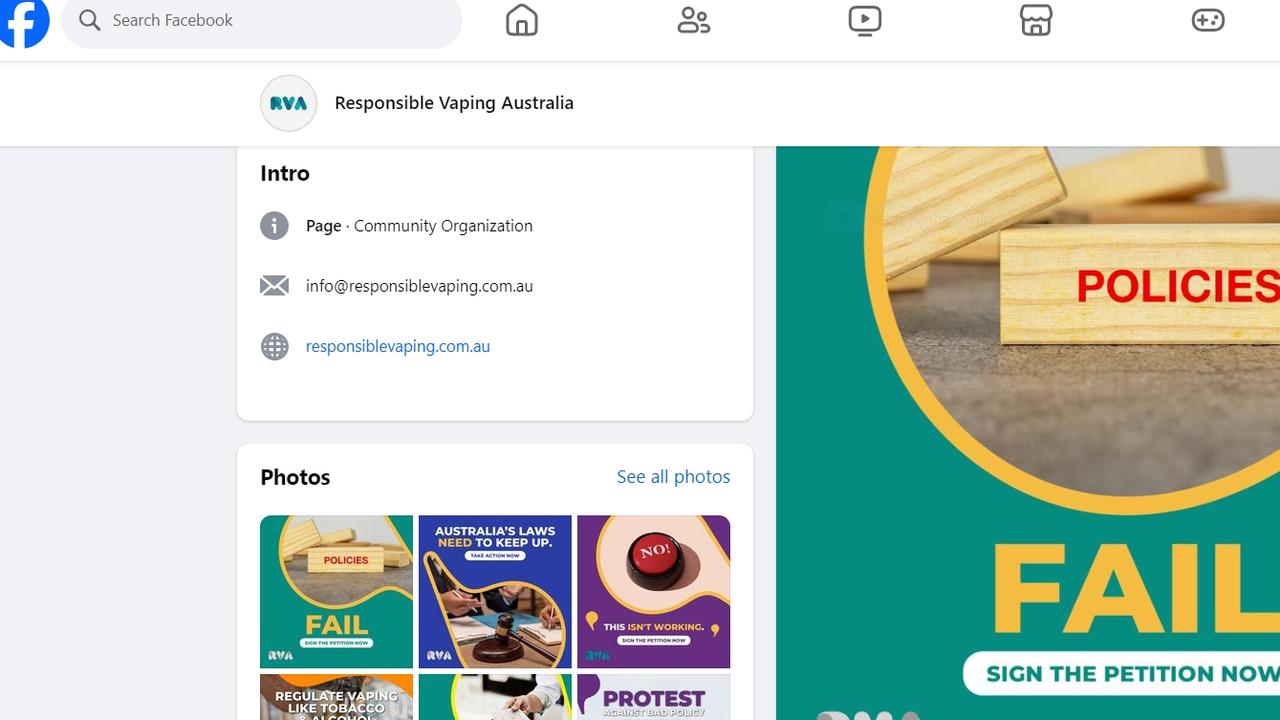
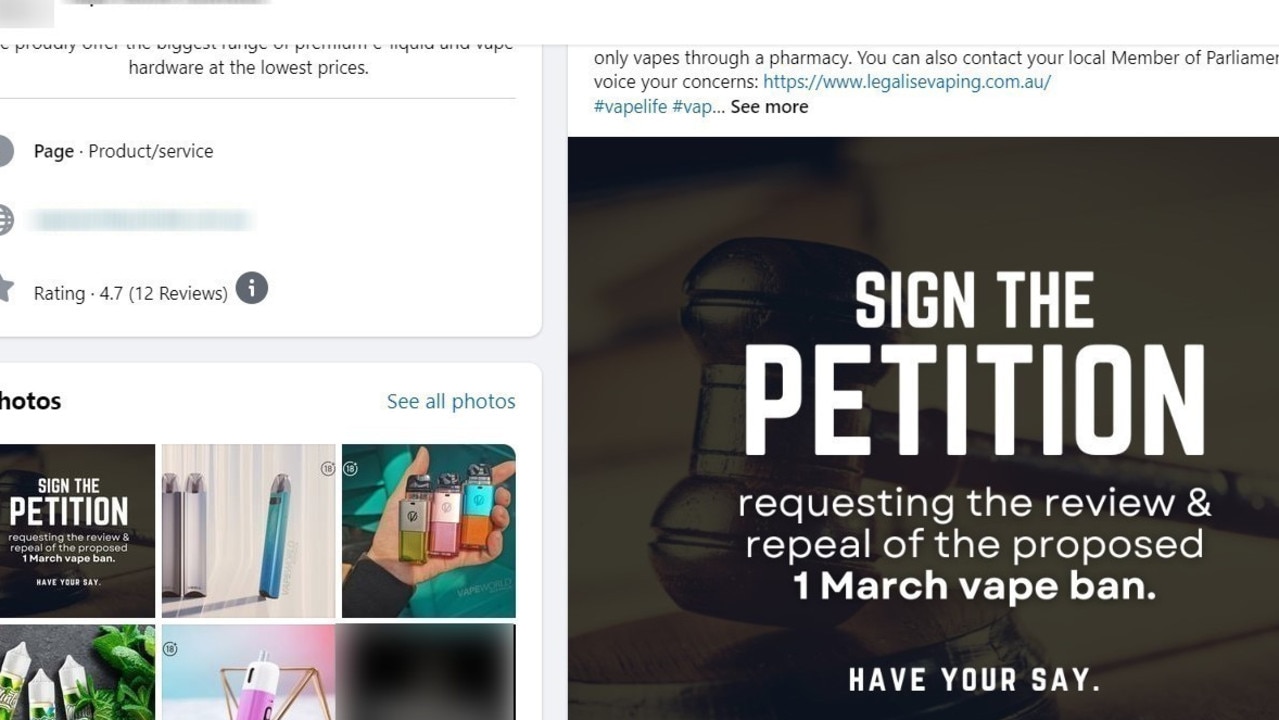
Research conducted by University Queensland’s National Centre for Youth Substance Use Research (NCYSUR) that is under peer review found Facebook listings “often provide seller contacts, bulk-buy discounts, and door-to-door delivery options, all without any age restrictions on accessibility”.
This is even though Meta’s transparency policy says:
“Ads must not promote delivery devices, such as electronic cigarettes, vaporisers or any other products that simulate smoking or are otherwise designed for use with tobacco or nicotine products”.
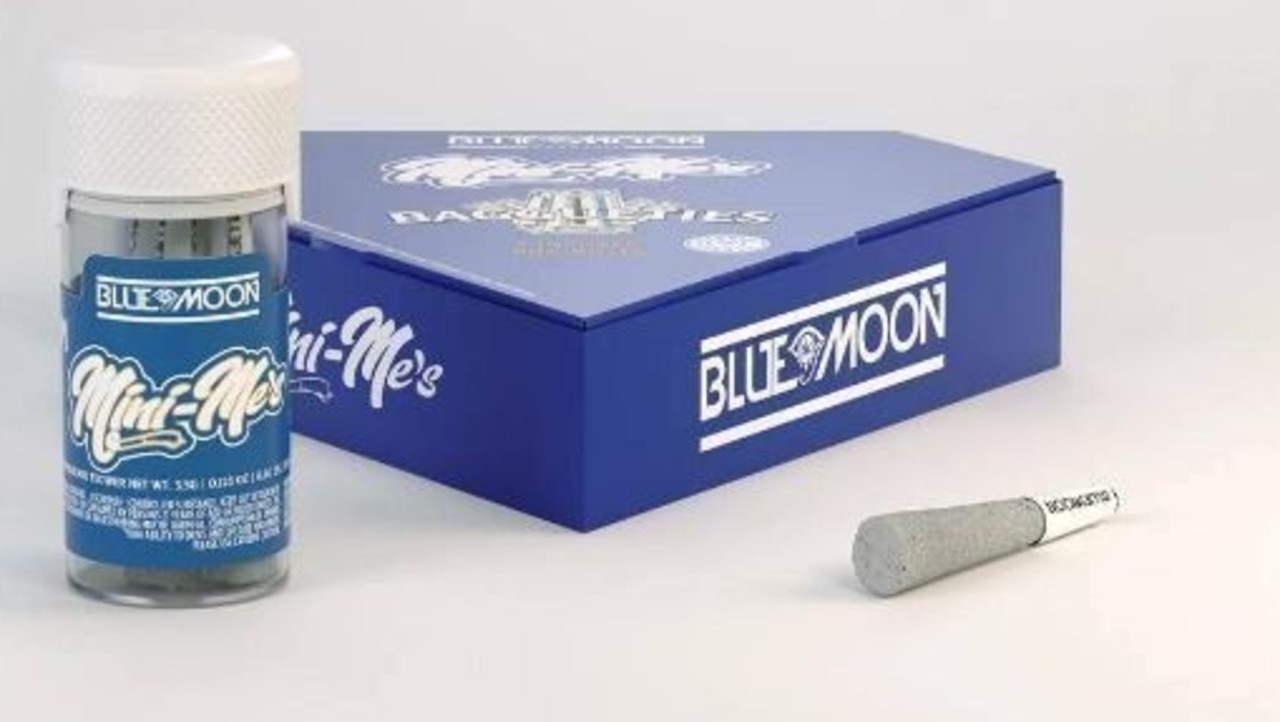
Meta disputes the vaping posts considered in the UQ study were advertisements.
After we brought separate pro-vaping pages to Meta’s attention, it confirmed it had “removed the Facebook Profiles as they violated our Community Standards”.
“We strongly encourage people to report items that may breach our rules so we can review and take the appropriate action,” a spokesperson said.
On other Facebook sites political ads promoting the signing of a petition to overturn tough new vaping rules do not clearly disclose the sponsor.
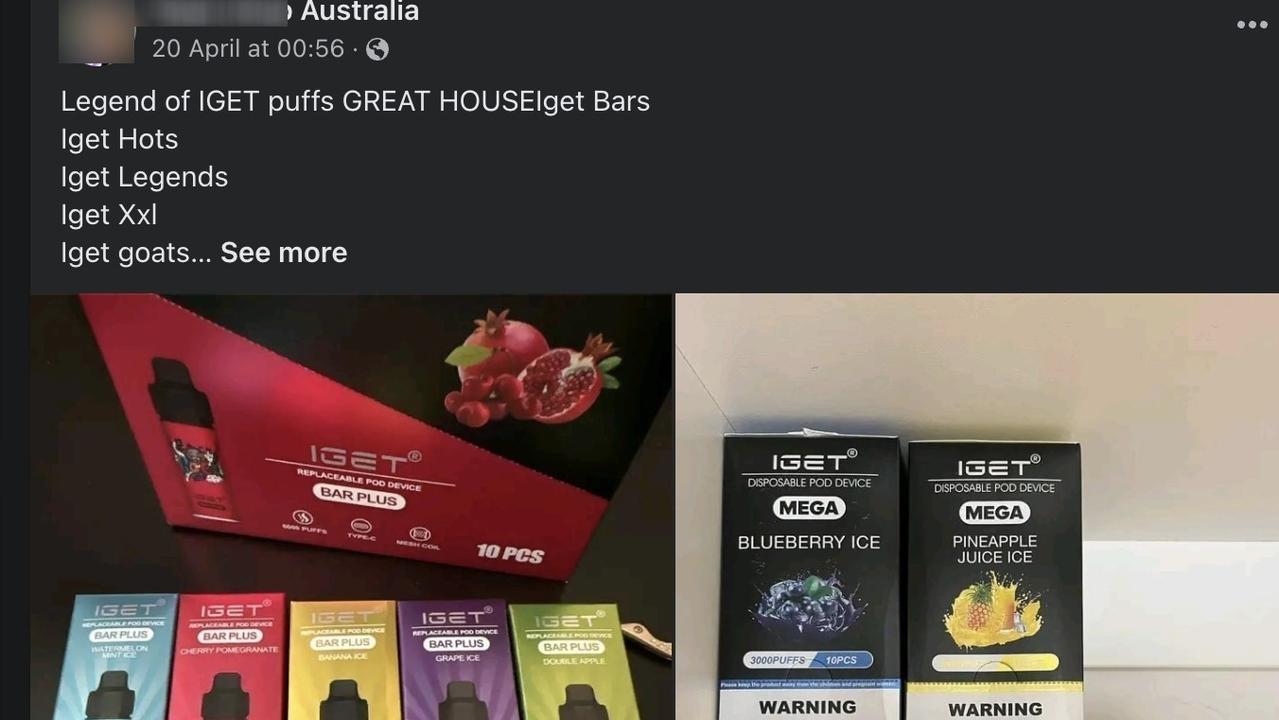
Meta’s transparency policy states: “Advertisers must include a verified “Paid for by” disclaimer on these ads to show the entity or person responsible for running the ad across Meta technologies”.
Responsible Vaping Australia established by tobacco giant British American Tobacco (BAT) runs a Facebook page promoting a petition that opposes the Federal Government’s new vaping ban.
The petition says “Vaping should be regulated like alcohol and tobacco through a licensed retail network who only sell to people 18+”.
But nowhere does it mention that the group is financed by BAT nor does it carry political authorisation and it has not been taken down by Meta.
It is understood Meta views this content not as a paid political advertisement but as an organic piece of content, this is subject to its Community Standards and it is not in violation of these.
It’s not just Facebook that’s the problem.
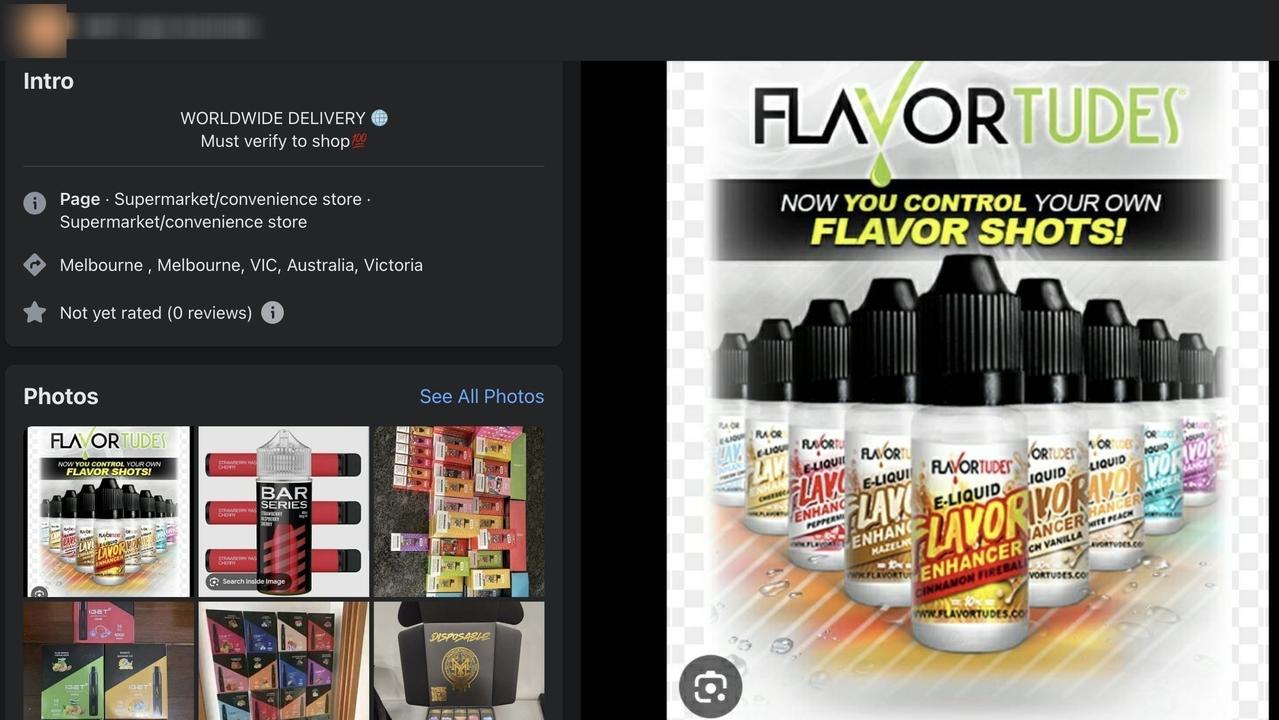
Research published by VicHealth and Quit last year found TikTok was housing more than 18.1 billion posts with the hashtag #vape where social made light of vaping addiction.
When alerted to our discovery of vaping Facebook posts, Health Minister Mark Butler said “the TGA will investigate these pages immediately”.
“These pages are flouting the law and the Government is not going to stand by and let this happen. I will write to Meta to ensure that they are complying with Australian law,” Mr Butler said.
Under new legislation the Government passed last year, from April 1 2024, all public advertising of vapes is banned and there are severe penalties for illegal advertising of therapeutic goods including fines of up to $1.2 million and five years imprisonment.
The government’s ban applies to ads whether they are paid for or not.
The TGA has a program to monitor and address unlawful advertising of nicotine products on the internet which recently received a $56.9 million funding boost.
The TGA holds regular discussions with digital platforms and social media sites like Meta to advise them on the rules for advertising and to help enhance their monitoring systems.
More Coverage
Originally published as Facebook vaping posts under investigation









